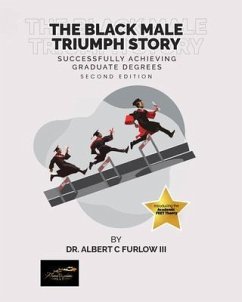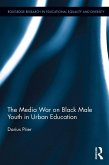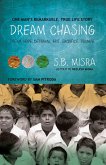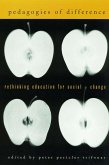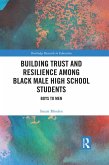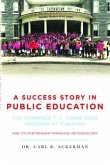PREFACE
The headlines of mainstream news media and even journal articles create a narrative of educated Black males as an "endangered species" and the education pipeline for Black males as "leaking rapidly." While the dire circumstances and dismal numbers of Black men in higher education are an unfortunate reality, this research study seeks to provide a counter-narrative to the plight of Black males in education, to inspire future students and educators to attain higher goals, resulting in additional higher education degrees. The findings in this study provide a counterpoint to deficit-oriented research on Black males in graduate school. To better understand and identify the reasons why Black male graduate students persist through a post-baccalaureate program, it is necessary to learn the intricacies of their experiences which, among other things, necessitates a qualitative examination into the effects, if any, of participation and mentorship on Black male graduate students. As a theoretical guide, this study utilizes Alexander Astin's Student Involvement Theory and Gloria Ladson-Billing's and William Tate's Critical Race Theory in Education. It is vital to note the decades of research that is decisive and upholds intellectual and collective alliances. Themes that emerged, such as why Black mentorship and representation matter, imposter syndrome, and the fact that employment viability trumps all, yielded the findings of these resilient leaders. This study aimed to collect and make sense of the lived experiences of 16 Black males who have received a master's degree or higher in any academic discipline in the last 5 years. Participants in the study came from places like Ohio State, the University of Wisconsin- Madison, Texas A&M, the University of Texas, and the University of Iowa, some of the top universities in the country. Participants also come from HBCUs with a national reputation, like Texas Southern University and North Carolina A&T State University (Thurgood Marshall Law). Moreover, others studied at Fordham University, Arizona State University, Trinity University, Cornell University, Kent State University, LSU (Louisiana State University), and UIW (Incarnate Word University). The Furlow Engagement and Endurance Theory (FEET), which is the apex of this research, is the culmination of the findings that led to the development of the Successful Black Males Postbaccalaureate Degree (SBMPD) Model. This theory was derived from a number of theoretical frameworks, as well as my own lived experiences.
The headlines of mainstream news media and even journal articles create a narrative of educated Black males as an "endangered species" and the education pipeline for Black males as "leaking rapidly." While the dire circumstances and dismal numbers of Black men in higher education are an unfortunate reality, this research study seeks to provide a counter-narrative to the plight of Black males in education, to inspire future students and educators to attain higher goals, resulting in additional higher education degrees. The findings in this study provide a counterpoint to deficit-oriented research on Black males in graduate school. To better understand and identify the reasons why Black male graduate students persist through a post-baccalaureate program, it is necessary to learn the intricacies of their experiences which, among other things, necessitates a qualitative examination into the effects, if any, of participation and mentorship on Black male graduate students. As a theoretical guide, this study utilizes Alexander Astin's Student Involvement Theory and Gloria Ladson-Billing's and William Tate's Critical Race Theory in Education. It is vital to note the decades of research that is decisive and upholds intellectual and collective alliances. Themes that emerged, such as why Black mentorship and representation matter, imposter syndrome, and the fact that employment viability trumps all, yielded the findings of these resilient leaders. This study aimed to collect and make sense of the lived experiences of 16 Black males who have received a master's degree or higher in any academic discipline in the last 5 years. Participants in the study came from places like Ohio State, the University of Wisconsin- Madison, Texas A&M, the University of Texas, and the University of Iowa, some of the top universities in the country. Participants also come from HBCUs with a national reputation, like Texas Southern University and North Carolina A&T State University (Thurgood Marshall Law). Moreover, others studied at Fordham University, Arizona State University, Trinity University, Cornell University, Kent State University, LSU (Louisiana State University), and UIW (Incarnate Word University). The Furlow Engagement and Endurance Theory (FEET), which is the apex of this research, is the culmination of the findings that led to the development of the Successful Black Males Postbaccalaureate Degree (SBMPD) Model. This theory was derived from a number of theoretical frameworks, as well as my own lived experiences.
Dieser Download kann aus rechtlichen Gründen nur mit Rechnungsadresse in A, D ausgeliefert werden.

